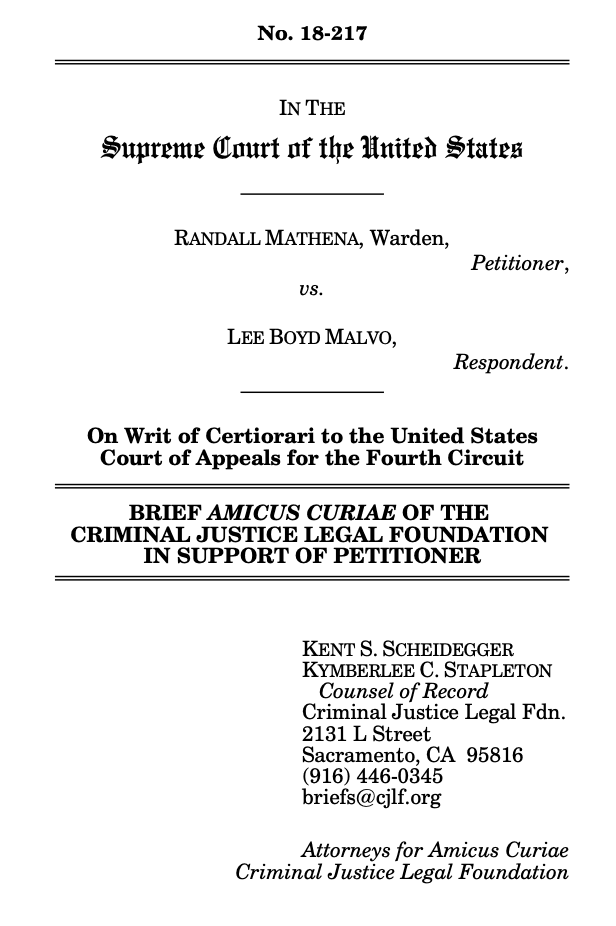
Summary of Argument
Miller’s holding is limited to sentencing schemes that mandate life without parole for juvenile homicide offenders. The Miller Court was concerned that an automatic life sentence without parole deprives a juvenile of the opportunity to present mitigating evidence of “youth and attendant characteristics” that may justify a lesser sentence. Malvo was sentenced to life in prison without parole for capital murder. However, under Virginia law, the trial court retained the authority to suspend all or part of his life sentences. The power to suspend the sentence renders Virginia’s sentencing scheme discretionary. The question in Montgomery was limited to whether Miller’s holding was retroactive to final cases. Because Miller is limited to mandatory life-without-parole sentences upon which a juvenile had no opportunity to present mitigating evidence of youth, the Fourth Circuit’s expansive application of Montgomery to Malvo’s life sentences was erroneous.